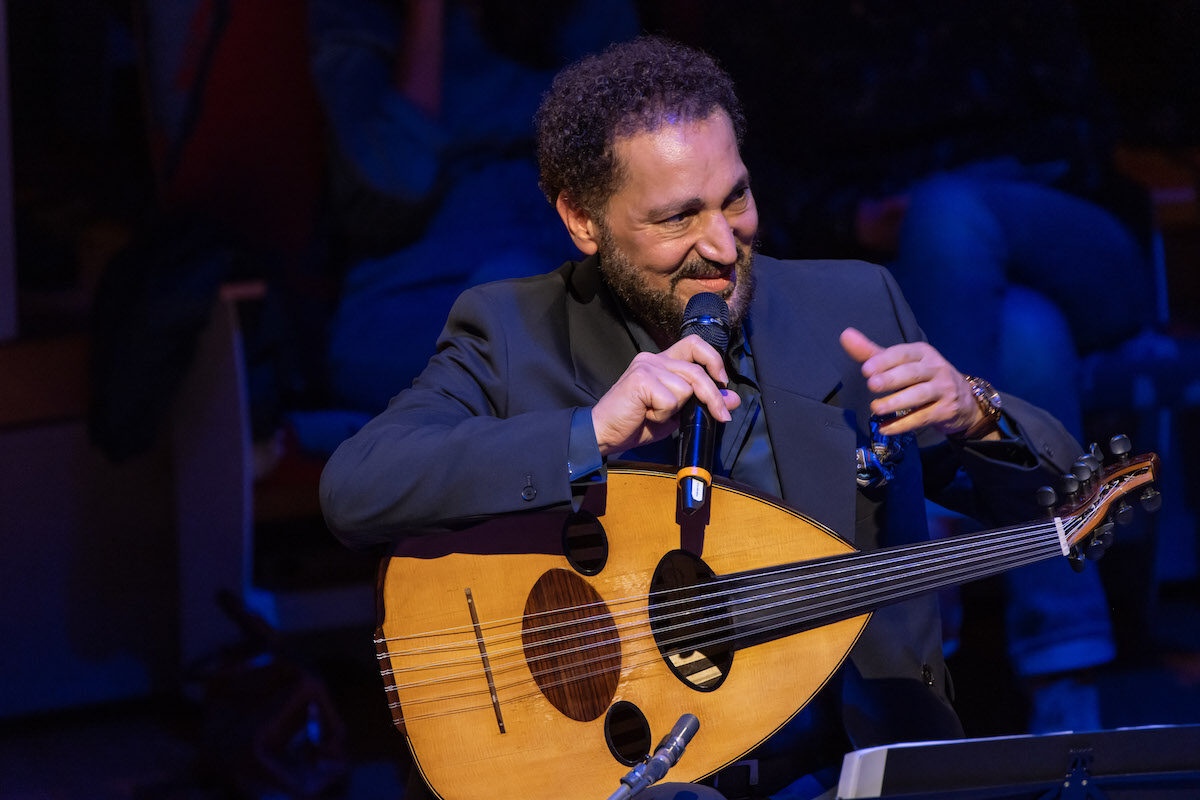
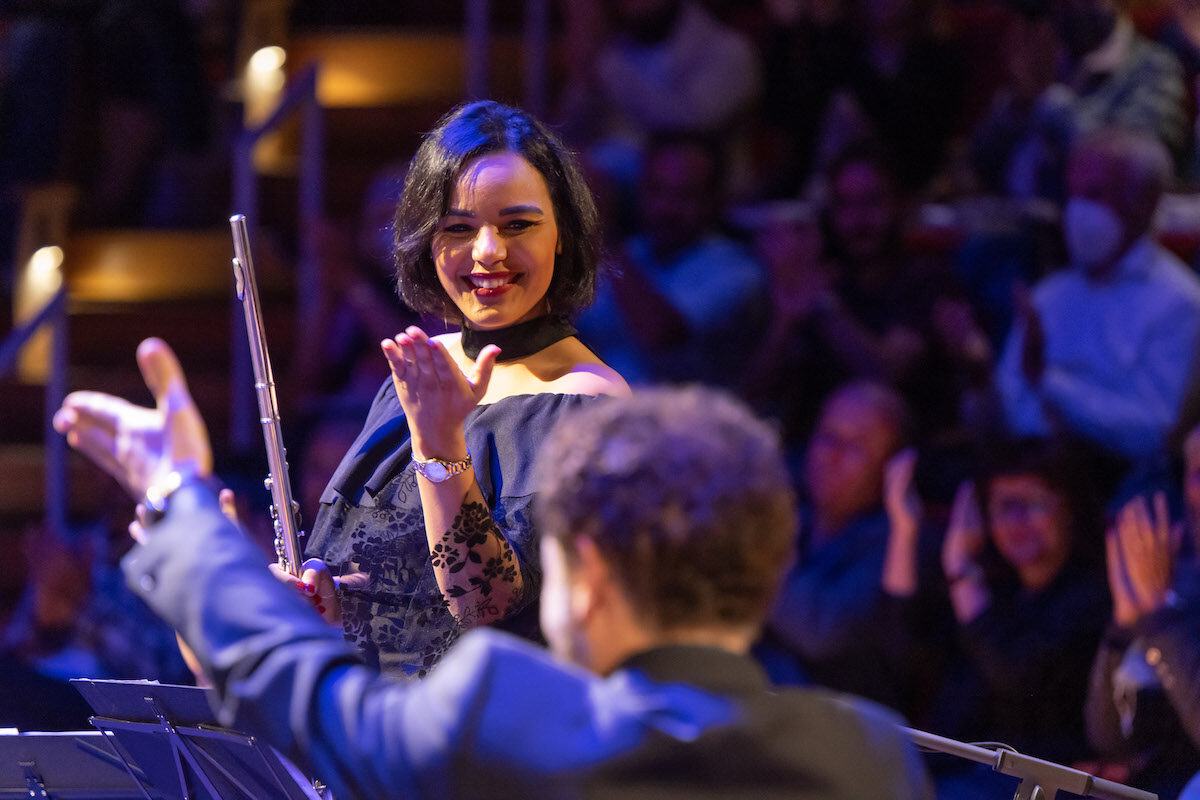
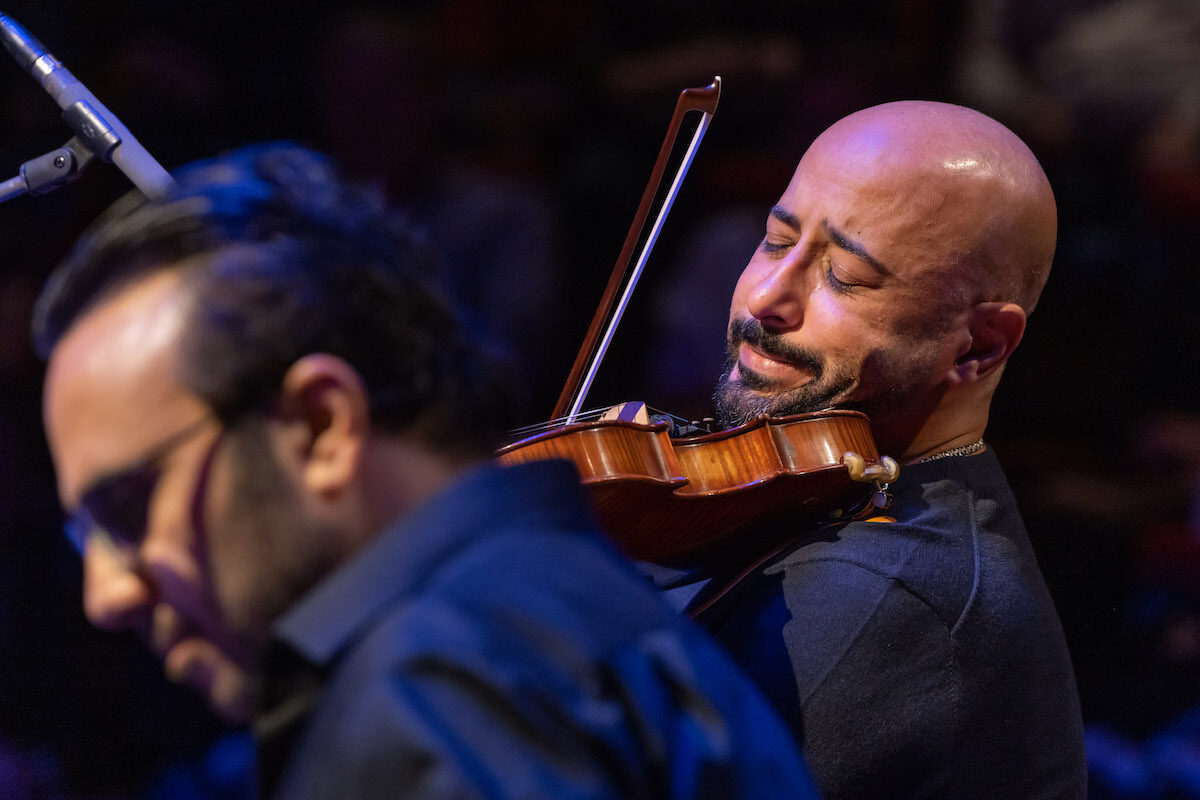
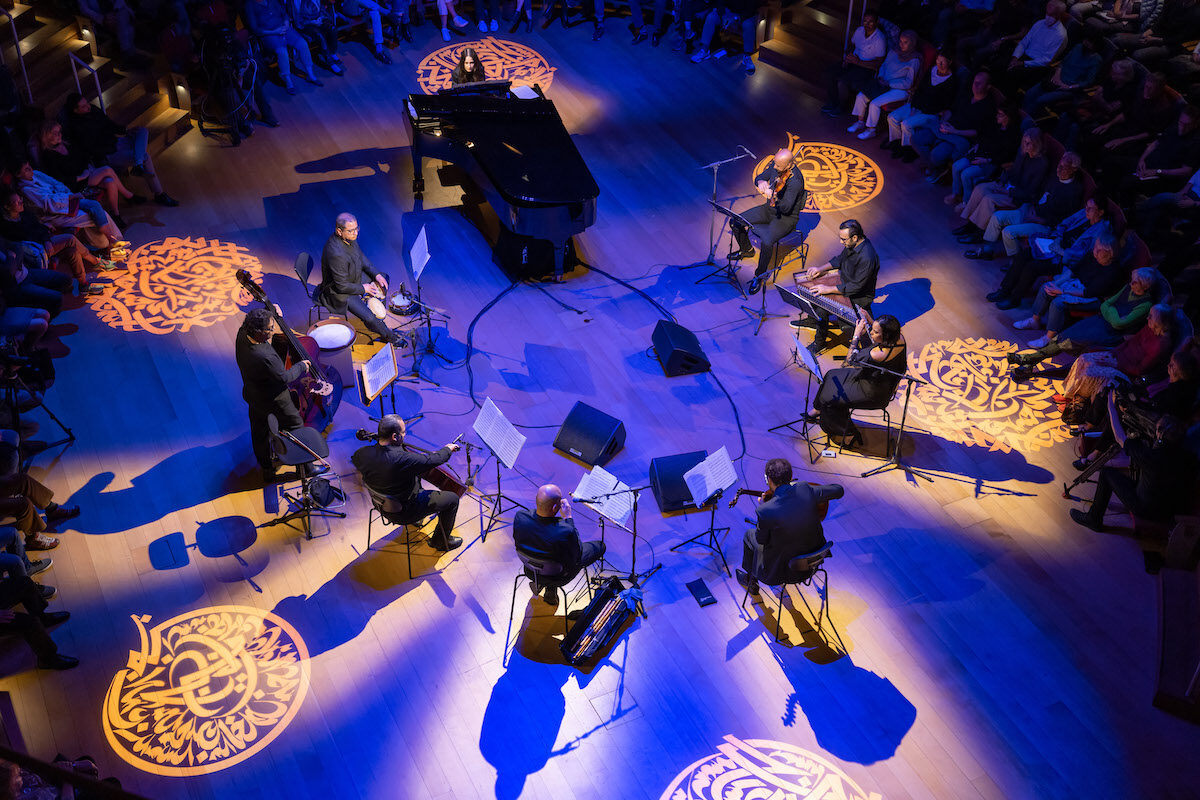
Naseer Shamma & Oyoun Ensemble
Arabic Music Days
Musical Performance Ensemble & Orchestra / Arab and Persian Music 0The origins of the Arabic takht reach back all the way to the 8th century. Originally designating the wooden platform that used to serve as the stage for the musicians, the term has come to refer to the classical ensemble of Arabic music—consisting of singer, oud, flute, qanun, and various percussion instruments—that has been adopted and developed over the centuries in multiple musical traditions across the Middle East and Northern Africa. This combination of musicians, which has inspired creative exchange to this day, is at the center of the 2022–23 season’s Arabic Music Days curated by Naseer Shamma. In four concerts, artists from Syria, Lebanon, and Morocco present traditional and contemporary takes on the concept of the takht.
To close the Arabic Music Days, Naseer Shamma takes the stage himself together with the Oyoun Ensemble.
Naseer Shamma, Oud
Saeid Kamal, Violin
Hany Elbadry, Ney
Rania Omar, Flute
Saber Abdelsattar, Qanun
Mahmoud Bedir, Violoncello
Salah Ragab, Double Bass
Hany Bedeir, Percussion
Angela Boutros, Piano

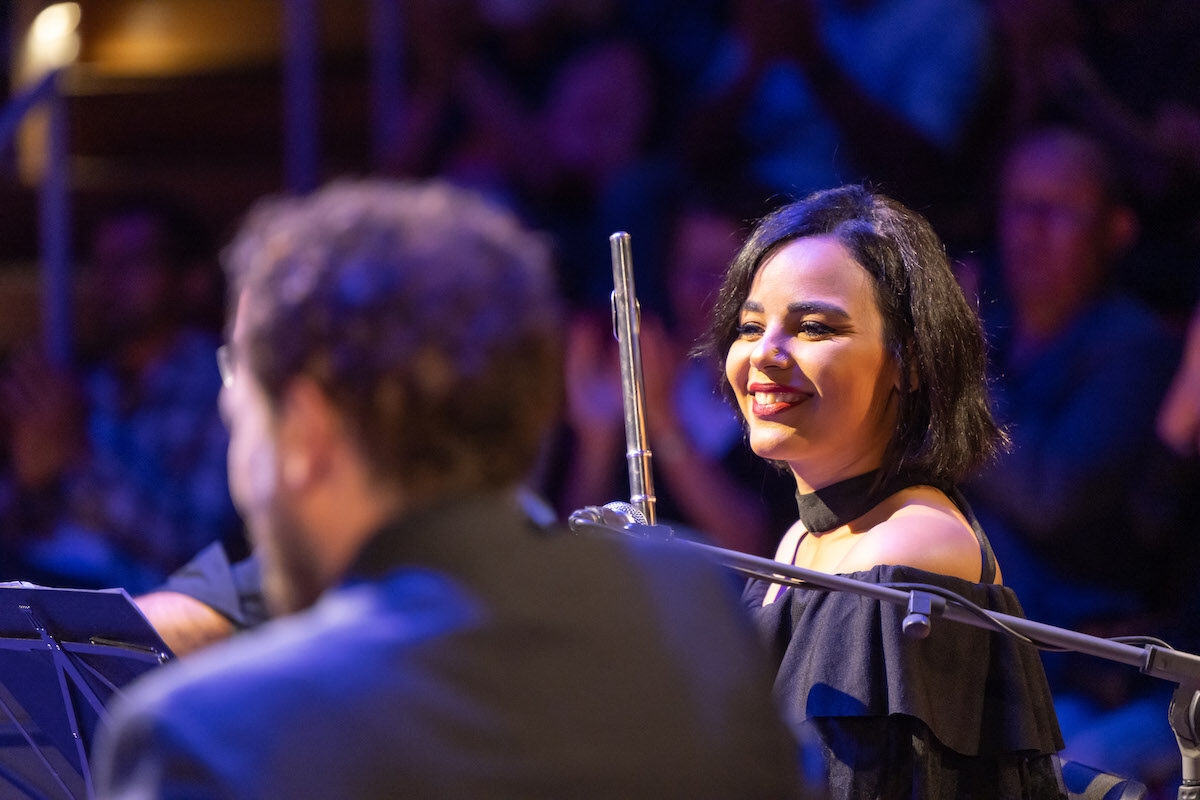

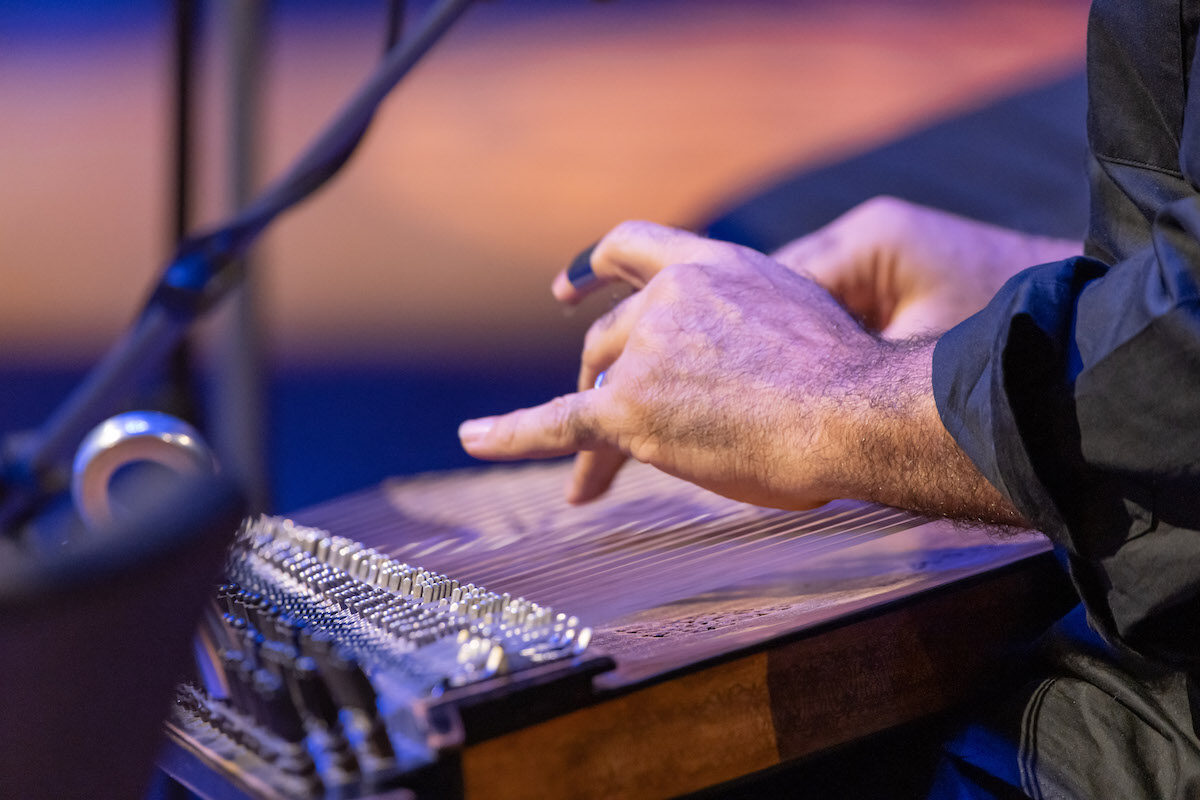
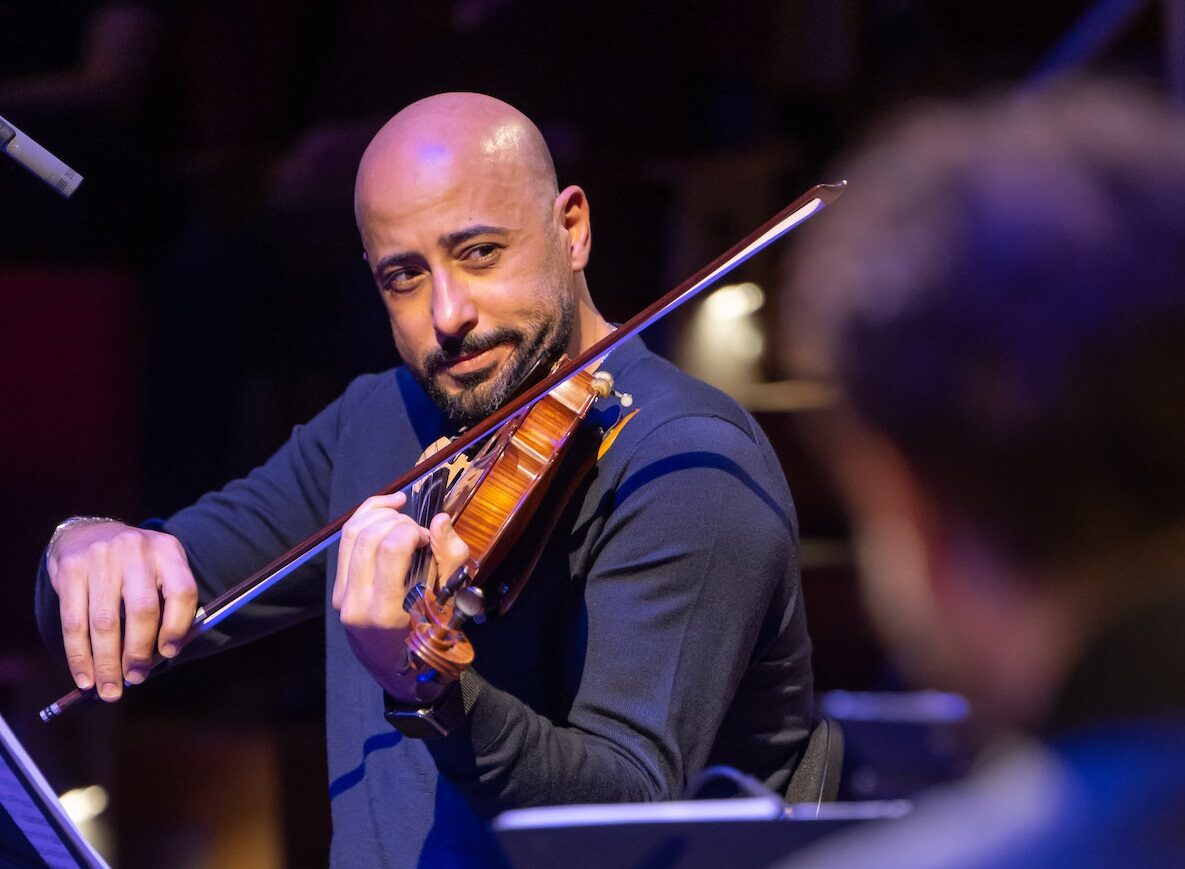
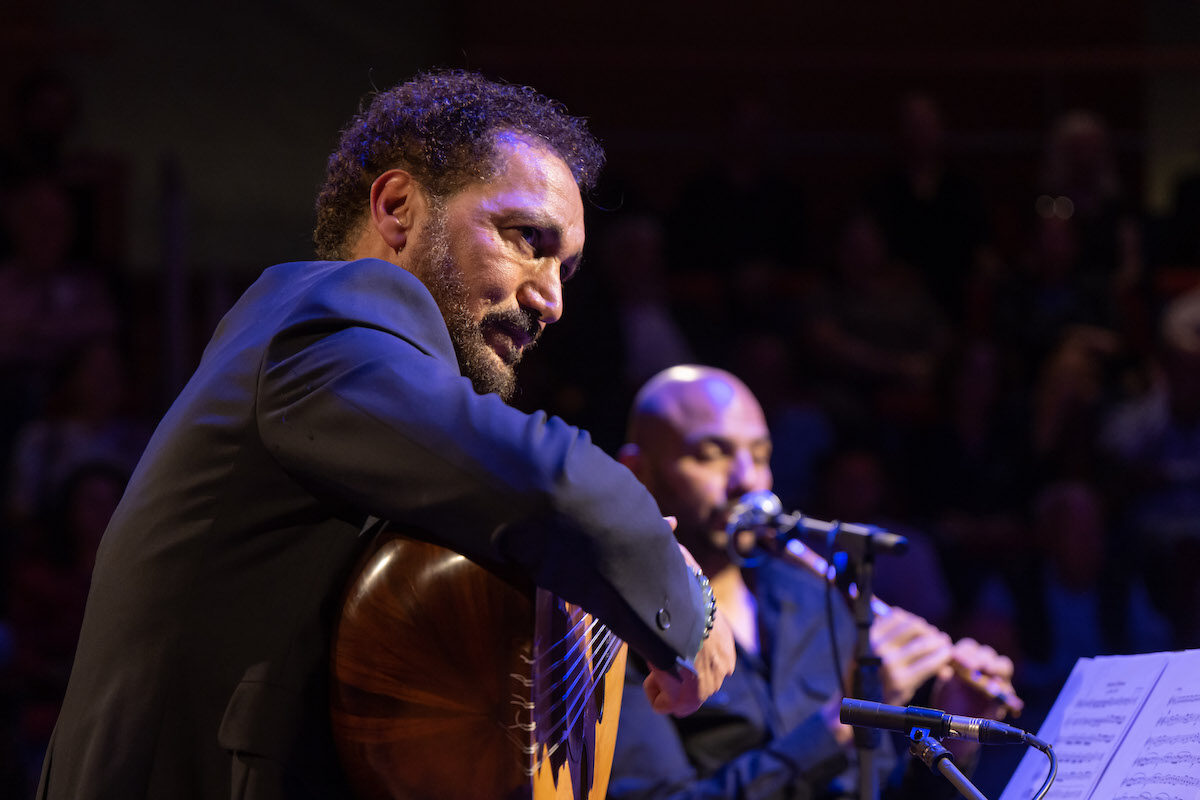
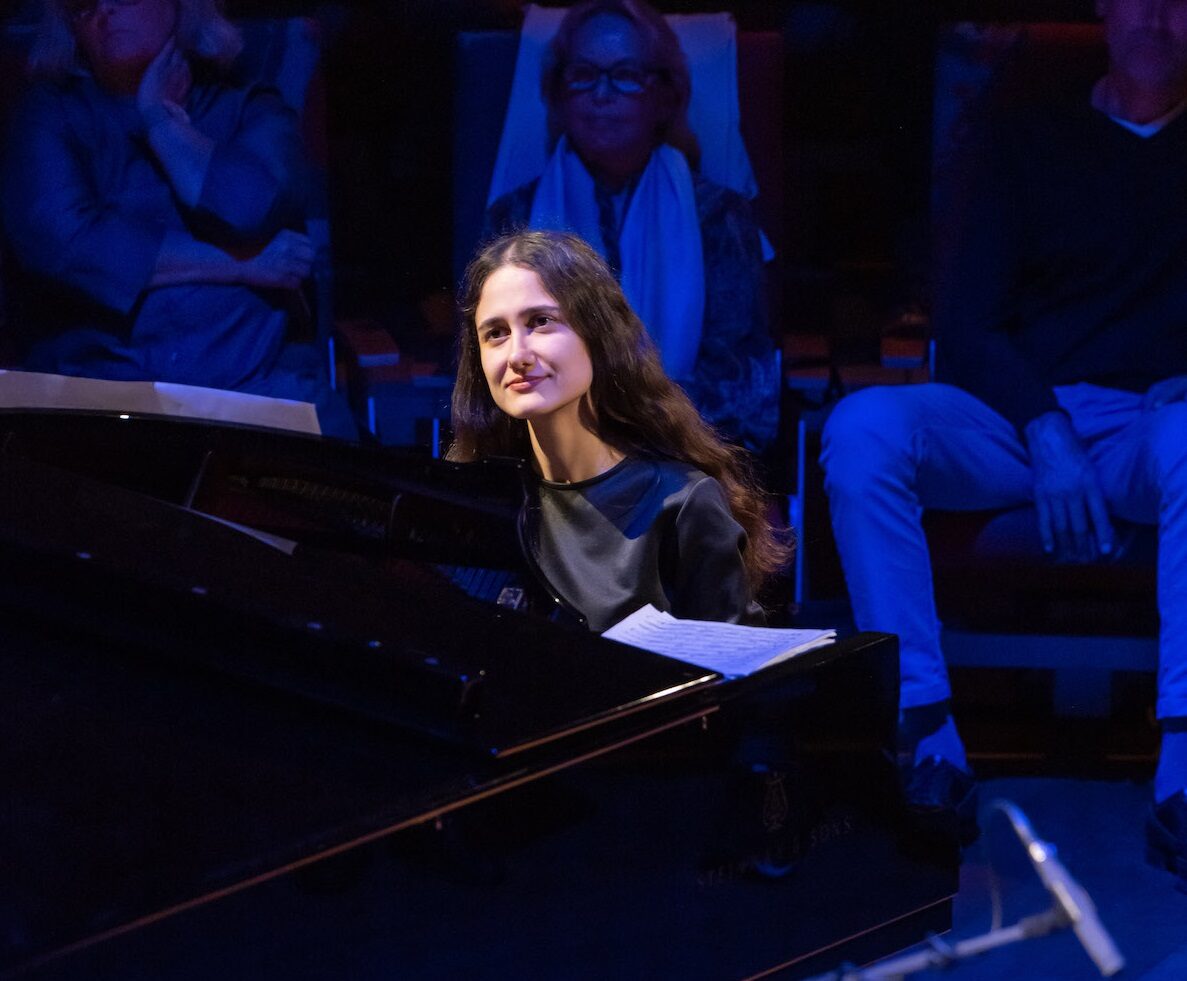
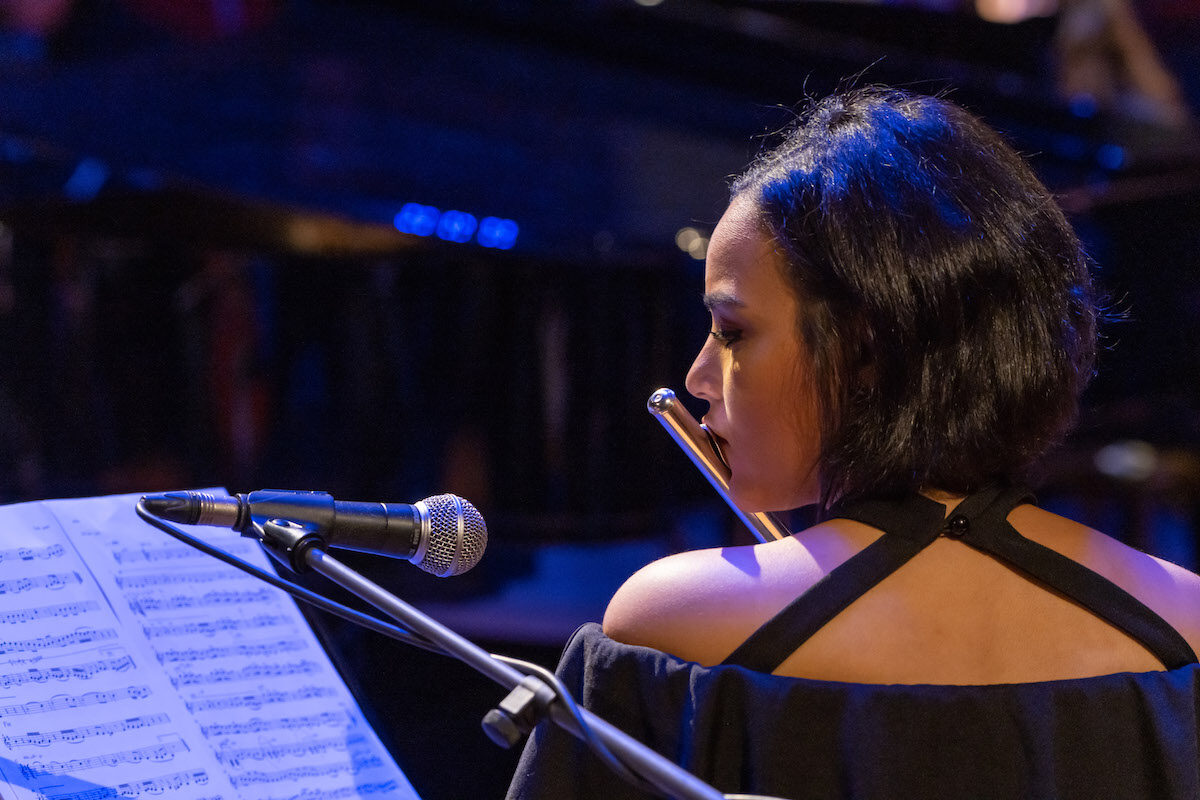


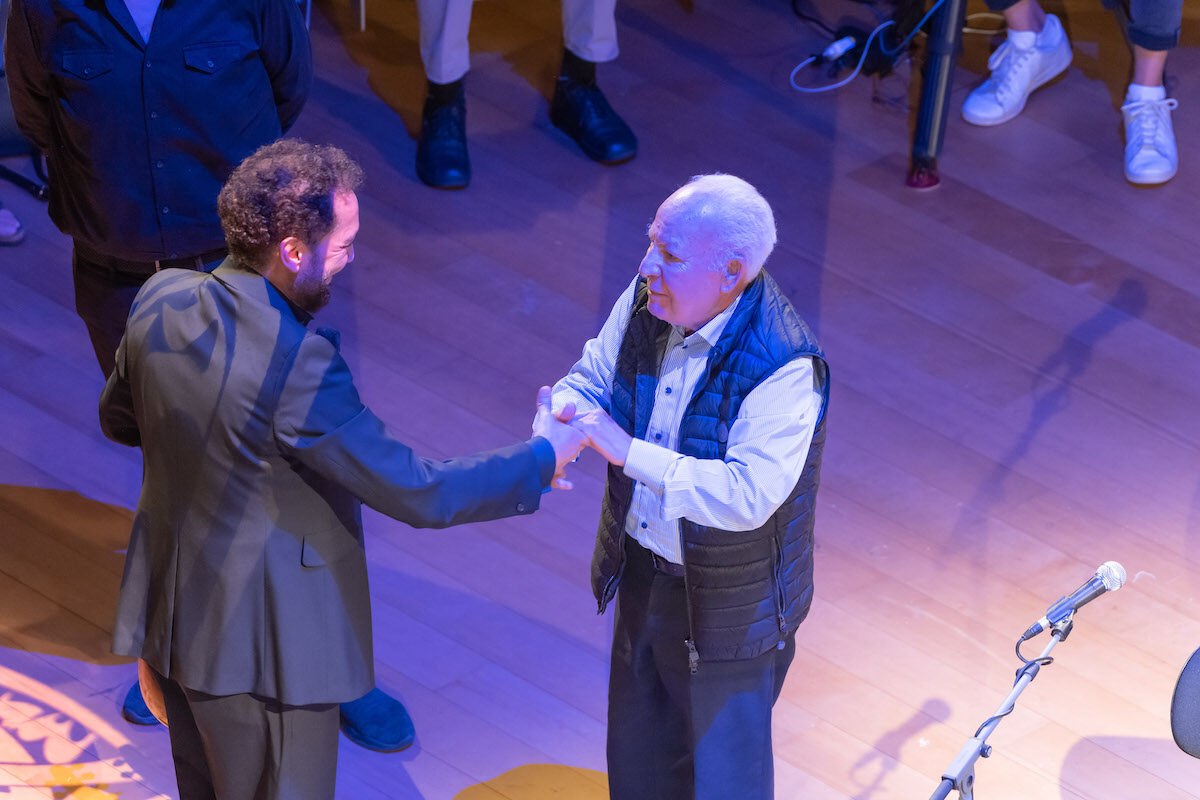
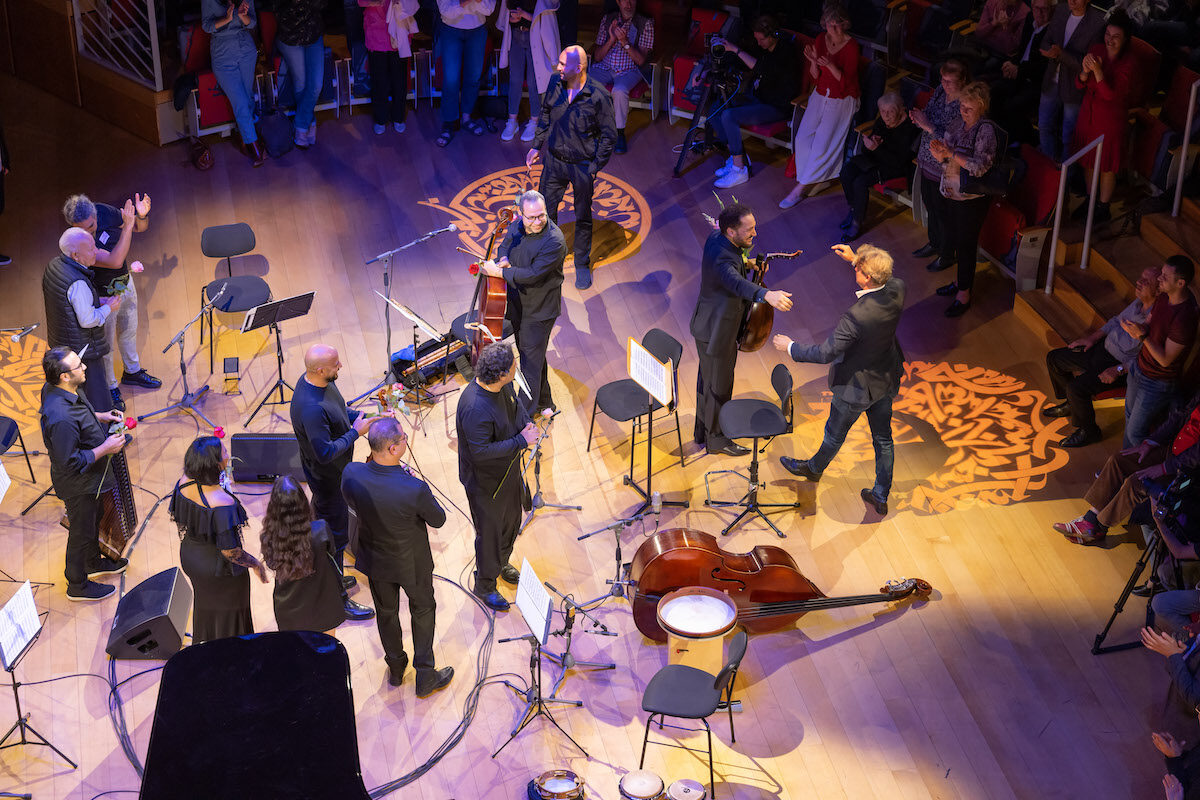
Photo Credit: Peter Adamik
During intermission poet Basim Alansar performed one of his poems. Watch a full poetry reading with him.
A Stranger‘s Rain
One night, the devil entered my life, and the sun shined. The
clouds that had clustered in my room dispersed, and in their steadthe songs blossomed. What’s more, the curse of discovery shoved its secrets in my face and bequeathed me wind-filled days.
I’m so happy about the night’s sun.
Remember, my soul, that the sun in my sky is old. For when I was a child, the devil flew over my head, and made me cry. And here I am encountering the curse again.
I who have swung between the clamor and the void,
and who hasn’t seen everything yet.
I pleaded unceasingly with my tutors in anxiety to teach me
rebellion and disobedience, and how to wreak havoc in my old
life. I unceasingly tracked a contemplative. When I followed his
instructions, all the volcanoes exploded. The sacred, which had
been my master and savior, evaporated, and I no longer followed
familiar paths.
During my ecstasy with the first destruction, I expelled the
contemplative, who had become an angel, from my kingdom.
I stopped being a feast for tranquility, and I shed morality from my
habits. I won’t surrender to the past again, and I won’t leave time
behind me full of suspicions. I filled my closets with doubts and
forced the questions to open their doors for me. And when
I lay my hand on Life’s Body, the Unknown attacked my heart
viciously. I will go and won’t look back, because the volcanoes of
Anger are waiting for me.
And now!
After I wade through winter blues, carrying spring and summer
in my suitcases, you see me go to the wilderness like Enkidu my
brother in his first days, and you see me face to face with autumn.
As a stranger.
Take off my hands my questions, which supported my strange
excursions, and take the remains of my language, which were
exhausted by the unusual stories.
All I can do is gather my papers and leave. And pray to fate.
You, you who hold perpetuity’s key!
I beg you, stripped as I am of everything but questions and hopes,
to show me your face in your Sufic evenings, to build me a house
in your heart, to make me a tree or a sun or even a dove after my
death, and to make my sight a torch to shine for lovers and the lost
in posterity.
I will leave,
And I will make the heart my balcony overlooking the lake of
silence.
I will leave,
and I will climb the stairs toward the shining,
I will leave for the first centuries,
I,
who saw God inhabiting the rain drops
and who ascended snow-capped mountains
searching for a delayed spring.
I will leave for the sun’s festivities,
and I will wave farewell to the old world.
Translated from the Arabic by Henry Holland and Hazem Shekho
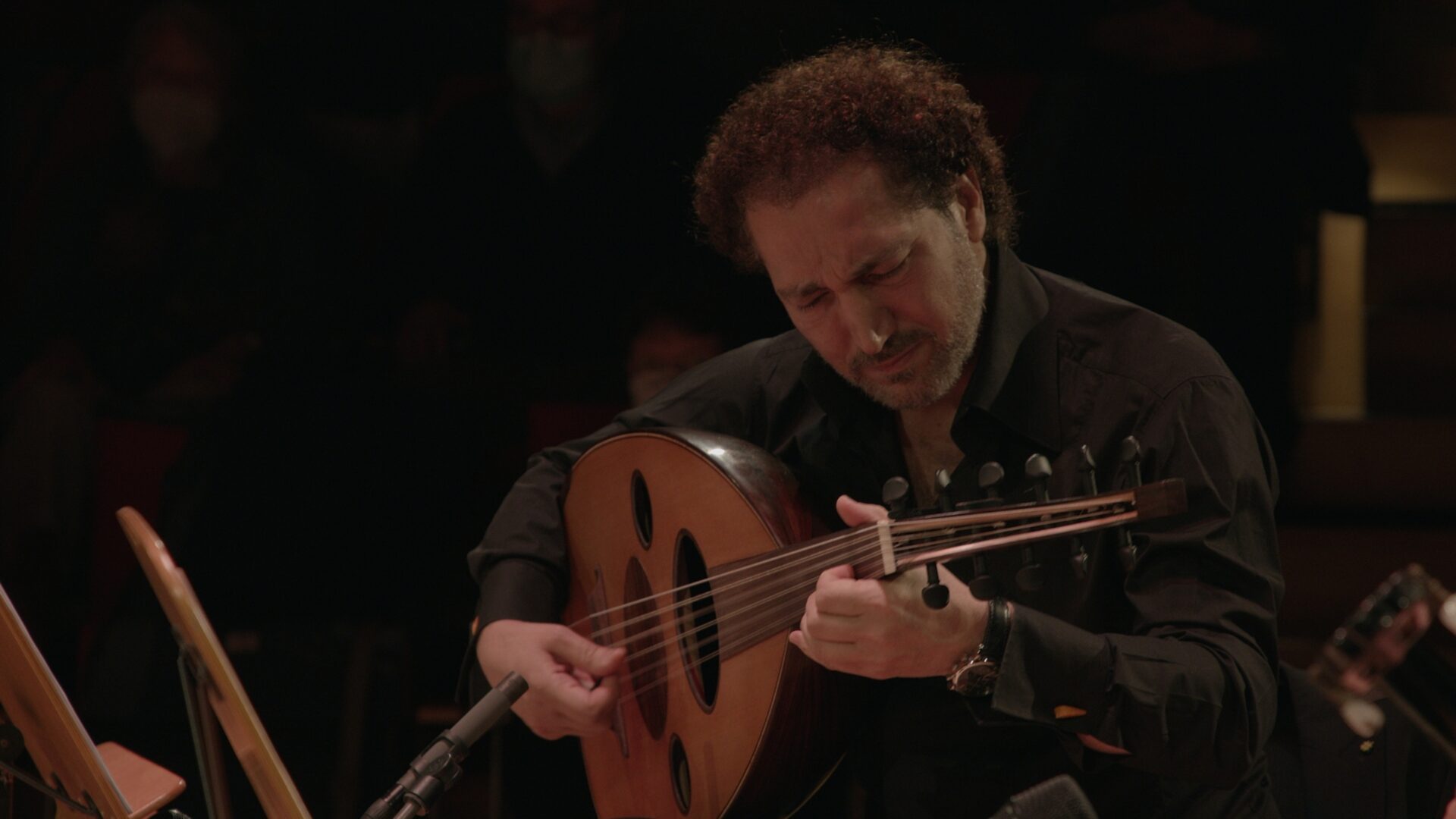
Arabic Music Days
Music, Visual Arts, Poetry and Film